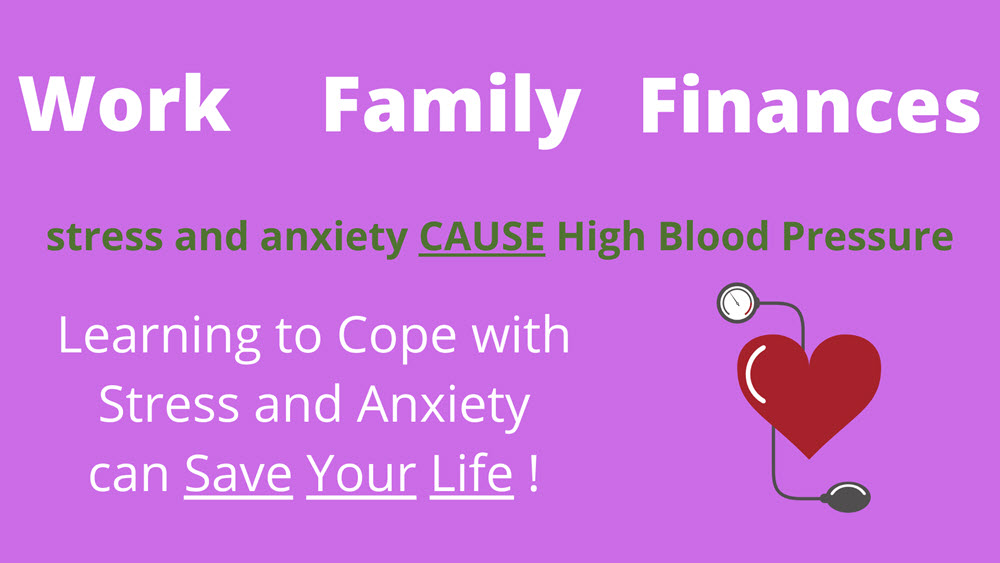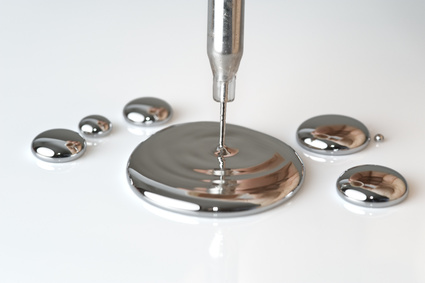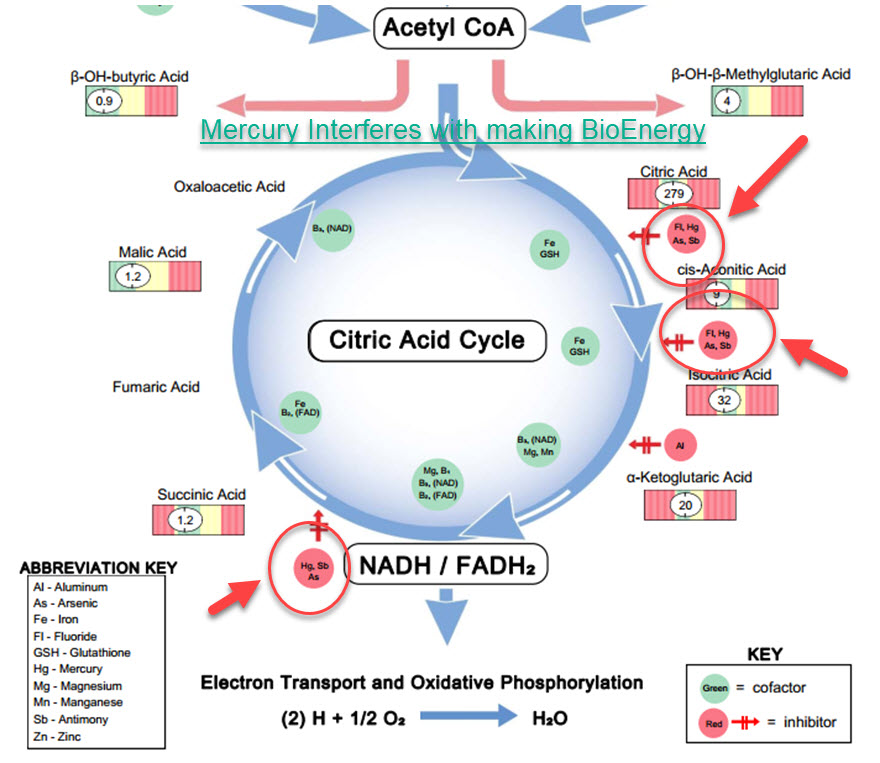Improve Your Cognitive Function
As adults over 50, the importance of maintaining cognitive function cannot be understated.
Cognitive function is the capacity for processing information, thinking, and problem-solving – all essential skills for living with dignity and independence.
Unfortunately, cognitive decline is a common part of the aging process, but there are many ways to slow down this decline and even improve cognitive function. Continue reading to explore some of the ways to improve cognitive function in adults over 50, including stimulation of neuron growth, neurological patterning, and plasmologens.
Neurons are the cells of the brain that transmit information. As we age, the number of neurons decreases and the connections between them become weaker. Fortunately, research has shown that stimulating the growth of new neurons can help slow or even reverse this decline.
Neurogenesis, the process of neuron growth, can be stimulated through physical activity, social interaction, and learning activities.
Regular physical activity, such as walking, swimming, or dancing, can help to increase blood flow to the brain, which can lead to the growth of new neurons. Social interaction, such as talking to friends and engaging in meaningful conversations, can also help to stimulate neuron growth. Learning activities, such as taking a class or reading a book, can help to challenge the brain and create new neurons.
Neurological patterning is another way to improve cognitive function in adults over 50.
Neurological patterning is a form of cognitive therapy that helps to strengthen connections between neurons by creating patterns of thought and behavior that are appropriate for the individual’s age and stage of life. This type of therapy helps to build a foundation for improved cognitive functioning and can help to reduce age-related cognitive decline.
Lastly, plasmologens are a type of supplement that can help to improve cognitive function in adults over 50. Plasmologens are naturally occurring compounds produced in the body that help to support cognitive function. These compounds are found in certain foods such as blueberries, walnuts, and dark chocolate. They can also be taken as a supplement to help support cognitive function.
In conclusion, there are many ways to improve cognitive function in adults over 50, including stimulation of neuron growth, neurological patterning, and plasmologens.
Regular physical activity, social interaction, and learning activities can all help to stimulate neuron growth. Neurological patterning can help to strengthen connections between neurons and create patterns of thought and behavior that are appropriate for the individual’s age and stage of life. Lastly, plasmologens can be taken as a supplement to help support cognitive function. By incorporating these strategies into your daily life, you can help to maintain and even improve your cognitive function as you age.
Smart Supplementation
As we age, our bodies are naturally subject to changes that can affect our health and wellbeing.
For adults over the age of 55, maintaining health and wellness can be a challenging task. Natural supplements can help to provide additional nutrients and support for optimal health, as well as helping to reduce the risk of chronic diseases.
Coenzyme Q10 (CoQ10)
One of the most important natural supplements for adults over the age of 55 is Coenzyme Q10 (CoQ10). CoQ10 is an antioxidant that is essential for energy production, and it plays an important role in mitochondrial function. As we age, our CoQ10 levels naturally decline, making supplementation a great way to support our energy levels and overall health. CoQ10 has also been shown to help lower cholesterol, reduce oxidative stress, and improve heart health.
Omega-3 Fatty Acids
Another important supplement for adults over the age of 55 is omega-3 fatty acids. Omega-3 fatty acids are essential for brain health, and they have also been shown to reduce inflammation and support cardiovascular health. Studies have also shown that omega-3 fatty acids may help to improve mood and cognitive function. Fish oil is a great source of omega-3 fatty acids, and it can be taken as a supplement or consumed through eating fatty fish like salmon, mackerel, and sardines.
Vitamin D
Vitamin D is another important natural supplement for adults over the age of 55. Vitamin D is essential for bone health and immune system function. Our bodies produce vitamin D naturally when exposed to sunlight, but this can be difficult as we age. Taking a vitamin D supplement can help to ensure that our bodies are getting the vitamin D they need for optimal health.
Vitamin C and Vitamin E
Antioxidants are another important natural supplement for adults over the age of 55. Antioxidants help to protect our cells from oxidative damage and can help to reduce the risk of chronic diseases. Vitamin C and Vitamin E are two of the most important antioxidants, and they can be found in foods like berries, green leafy vegetables, nuts, and seeds. Taking a daily multivitamin that includes antioxidants can also help to ensure our bodies are getting enough of these important nutrients.
Probiotics
Finally, probiotics are an important natural supplement for adults over the age of 55. Probiotics are beneficial bacteria that help to maintain a healthy balance of bacteria in the gut. Probiotics have been shown to help improve digestion, reduce inflammation, and boost immunity. They can be found in fermented foods like yogurt, sauerkraut, and kimchi, as well as in supplement form.
In conclusion, natural supplements can be an effective way to support health and wellness in adults over the age of 55. Coenzyme Q10, omega-3 fatty acids, vitamin D, antioxidants, and probiotics are all important natural supplements that can help to improve energy levels, mitochondrial function, longevity, and overall health. Taking a daily multivitamin can also help to ensure that our bodies are getting the essential nutrients they need for optimal health.
Detoxification and Inflammation: Understanding the Connection
Detoxification and inflammation are two processes that are essential to the body’s natural health and well-being.
When these processes are out of balance, they can lead to many negative health consequences. Fortunately, natural functional medicine offers a holistic approach to understanding and addressing these processes in order to restore balance and health.
Detoxification is the process of removing toxins from the body. Toxins are chemicals, pollutants, and other substances that can accumulate in the body over time, leading to a variety of health issues. The body naturally detoxifies itself through the liver, kidneys, skin, lungs, and digestive system. However, the body can become overwhelmed by too many toxins from the environment, poor diet, and other lifestyle factors. When this happens, detoxification can become impaired and lead to a variety of health issues.
Inflammation is the body’s natural response to injury, illness, or infection.
It is a normal and necessary process that helps the body heal and defend itself. However, chronic inflammation can lead to a wide range of health issues if left unchecked. Chronic inflammation is linked to a variety of conditions, including heart disease, diabetes, and arthritis.
The connection between detoxification and inflammation is not always clear, but they are both essential processes that are closely related. When the body is overloaded with toxins, the natural detoxification process can become impaired. This can lead to a build-up of toxins in the body, which can cause inflammation. Conversely, when inflammation is present, the body may be unable to effectively detoxify itself, leading to a build-up of toxins.
Natural functional medicine offers a holistic approach to understanding and addressing both detoxification and inflammation. By focusing on the whole body and the underlying cause of the issues, natural functional medicine can help to restore balance and health.
For example, dietary changes are often recommended to improve detoxification and reduce inflammation. A diet rich in fresh fruits and vegetables, whole grains, and healthy fats can help to detoxify the body and reduce inflammation. In addition, eating antioxidant-rich foods such as blueberries, tomatoes, and dark leafy greens can help to protect the body from toxins and reduce inflammation.
Improve detoxification and reduce inflammation.
In addition to dietary changes, natural functional medicine also recommends lifestyle changes to help improve detoxification and reduce inflammation. Regular exercise helps to promote detoxification by increasing circulation and promoting the elimination of toxins. Stress management techniques, such as heartmath, can also help to reduce inflammation.
Supplement recommendations
Finally, supplements can be used to help improve detoxification and reduce inflammation. Certain supplements, such as turmeric, omega-3 fatty acids, and probiotics, are known to have anti-inflammatory properties. In addition, certain herbs and vitamins can help to support the body’s natural detoxification process.
Detoxification and inflammation are essential processes that are closely related. When these processes are out of balance, it can lead to a variety of health issues. Fortunately, natural functional medicine offers a holistic approach to understanding and addressing these processes in order to restore balance and health. By making dietary and lifestyle changes, taking supplements, and utilizing stress management techniques, it is possible to improve detoxification and reduce inflammation, leading to better overall health and well-being.
Calorie Restriction
As people age, their bodies go through a lot of changes.
From a decrease in muscle mass to a decrease in bone density, aging can lead to a variety of health issues. One way to combat these issues is by engaging in calorie restriction.
Calorie restriction is the practice of cutting back on calories in order to maintain a healthy weight and reduce the risk of age-related diseases. This practice can be especially beneficial for those over the age of 50, as it has been linked to a number of health benefits.
Calorie restriction has been studied extensively over the years, and the results are promising. Research suggests that reducing calorie intake can help improve overall health and reduce the risk of age-related diseases. Studies have found that calorie restriction can reduce inflammation and oxidative stress, both of which can play a role in the development of age-related diseases.
In addition to reducing inflammation and oxidative stress, calorie restriction has been found to increase lifespan in animals. While the effects on humans have not been as extensively studied, it is believed that calorie restriction may have the same benefits in humans. This is because calorie restriction has been linked to improved metabolic health, which can help reduce the risk of age-related diseases.
Exercise: Resistance Training and Cardio Training
When it comes to health and wellness, exercise is essential for a healthy lifestyle.
Exercise helps to increase energy and reduce stress levels. There are many types of exercise that can benefit your health, and two of the most important types are resistance training and cardio training.
Resistance training, also known as strength training, is a form of exercise that uses weights or other forms of resistance to build muscle and strength. It helps to tone the body, improve balance, and strengthen muscles and bones. Resistance training can be done with free weights, exercise machines, or even bodyweight exercises. It is an important part of any fitness routine as it helps to prevent injuries, improve posture, and increase overall fitness.
Cardio training, on the other hand, is a form of exercise that increases the heart rate and breathing rate. It is great for improving cardio-respiratory fitness, burning calories, and promoting weight loss. Examples of cardio exercises include running, jogging, swimming, cycling, and walking. Cardio training is an important part of any fitness program as it helps to increase endurance, improve heart health, and reduce stress.
When it comes to health and wellness, it is important to find a balance between both resistance training and cardio training.
What is Naturopathy?
What is Naturopathic Medicine?
Naturopathy is a field of medicine that offers:
- Scientifically proven natural methods of healing
- Preventative medicine
- Treatment of the root cause of illness
- Simultaneous treatment of mind, body, and spirit
- A strong patient-doctor relationship
What is a Naturopathic Physician?
Naturopathic physicians are highly trained in both conventional and traditional (natural) medicine, completing a four-year post-graduate program in basic and clinical sciences, as well as clinical nutrition, botanical medicine, homeopathy, acupuncture, physical medicine, and counseling.
Your ND will prepare a personalized plan to bring you to optimal health. That might include any combination of natural healing treatments, such as acupuncture, homeopathy, counseling, botanicals, biofeedback for stress reduction, and others.
When you visit an ND, be prepared to take an active role in your own health!
You’ll receive personalized recommendations regarding diet, exercise, and any other factors that might affect your well-being. Ultimately, you’re in control of your health, and only you can decide to make healthy changes. But with an ND, you have a guide to lead you through the confusing maze of nutrition, exercise, and general health information.
Naturopathic Medicine is a very small community of board-certified doctors who are licensed to treat patients with all types of medical conditions. Despite its size, this community delivers exceptional healthcare to thousands of people throughout the country.
Learn More About Naturopathic Medicine
The American Association of Naturopathic Physicians has produced the following educational video clips. Click on the topics to view the videos. Please contact Dr. Gruber for more information:
- Cardiovascular Disease and Diabetes
- Chronic Disease
- Cancer
- Attention Deficit, Allergies, and Fibromyalgia
- Naturopathic Family Medicine
If you have high blood pressure, learning to better cope with stress & anxiety could save your life
Stress Management lowers High Blood Pressure
There’s a reason why checking a patient’s blood pressure is always one of the first things done by a nurse or doctor. High blood pressure affects close to a third of the American population, and it doesn’t show any symptoms.
It also comes with a lot of serious health risks. High blood pressure is when your blood is putting too much force on the walls of your blood vessels, which causes damage over time. This damage makes it hard for blood to get to important organs which can eventually lead to serious complications such as kidney disease, heart disease, or a stroke or heart attack.
Stress and Anxiety cause High Blood Pressure
The connection between chronic high blood pressure also called hypertension, and stress and anxiety is still being researched. What we do know is when we get stressed out, our body releases cortisol and adrenaline into our blood stream. These “fight or flight” hormones cause our heart to beat faster and our blood vessels to get smaller, which in turn causes a temporary spike in blood pressure. This puts us in somewhat of a hyperactive state, which would be effective if either fighting or fleeing could solve all our problems.
But in today’s world that’s not usually the case. Our problems are generally less dangerous and more frequent than they were thousands of years ago. For people who get stressed out easily, the extra strain regularly put on their blood vessels can cause damage over time.
For people who already have hypertension, stress can only make the risks greater. With the damage that high blood pressure is already causing on your blood vessels and organs, keeping your stress under control is very important.
Other Causes of High Blood Pressure
Although stress causes blood pressure to increase temporarily, which is dangerous for people who already have hypertension, anxiety is not known to cause chronic high blood pressure by itself. However, a lot of behaviors people use to cope with stress puts them at a higher risk.
Smoking, drinking alcohol, and an unhealthy diet are all ways that people commonly deal with stress. These behaviors can also all lead to chronic high blood pressure. Fortunately, if these behaviors are stopped, a person’s blood pressure can go back to a healthy level.
Natural treatments for High Blood Pressure
Ways to lower your blood pressure at home include:
- Regular exercise
- Not smoking
- Avoiding alcohol
- A healthy diet
- Eating less salt
Learning to manage stress is also important for keeping your blood pressure under control. When you’re stress-free, unnecessary blood pressure spikes can be avoided, and maintaining a healthy lifestyle becomes easier. Effectively managing stress always leads to a healthier body. A natural solution to treat high blood pressure is Heart Strengths Therapy.
Lower your stress and your blood pressure with Dr. Gary Gruber
Dr. Gary Gruber is a licensed naturopathic practitioner and holistic health counselor. He owns Family and Environmental Medicine where he specializes in helping his patients find natural solutions for high blood pressure that is the result of stress and anxiety.
If you have high blood pressure and need help learning to cope with stress and anxiety in a healthier way, contact Dr. Gary Gruber.
The office of Family and Environmental Medicine is in New Canaan, Connecticut, within walking distance from the New Canaan train station. In the center of Fairfield County his office is only 10 minutes from Stamford and Darien, 20 minutes from Ridgefield, Greenwich, and Westport. An easy ride on the New Haven MetroNorth railroad hour from New York City.
Podcast: What is Two Weeks of Your Life Worth?
The LiveO2 team made a very important podcast that we wanted to highlight, with the flu having reached an "epidemic" status. Click on the podcast player below to listen, or you can watch the YouTube version below the player!
They did a great job summarizing how to use LiveO2 to not only recover from the flu, but to also build preventative habits that boost your immunity.
"LiveO2 combined with Dr. Gruber's infrared sauna has helped me recover from colds and flus quickly. I find that I usually feel better within 12-24 hours after my first session. If I can catch a cold or flu at onset I have found that LiveO2 allows me to never actually get the illness and I am better the next day."
Mercury, Chronic Diseases and Mitochondrial Dysfunction
According to the World Health Organization, Mercury is one of the top ten chemicals that poses a considerable threat to public health.
Mercury is everywhere in our environment.
It is found in air, water, soil. It is a familiar industrial chemical found in thermometers, thermostats, and light bulbs. It is released into the air by burning coal. The mercury in the air is deposited in the ocean and bioaccumulates and biomagnifies throughout the food chain.
Mercury is 50% of the material used to fill a tooth cavity. The filling, also known as an amalgam filling, exposes the human body to elemental mercury as the filling deteriorates by chewing. The off-gassing of mercury is dangerous because bacteria in the mouth can change elemental mercury to methylmercury, a form of mercury that is particularly dangerous to the nervous system.
While the human body has a mechanism to detoxify mercury (i.e., remove it from the body), for many people this detoxification process is not adequate and mercury will accumulate in bones, liver, kidneys, and brain. Mercury is toxic to the immune and neurological systems. As a result, for people who are susceptible to neurodegenerative and autoimmune diseases mercury may expedite the conditions of dementia, Alzheimer’s, lupus and multiple sclerosis. In the following video, it was demonstrated how mercury causes the nerve entanglements associated with Alzheimer’s.
Mercury interferes with the mechanism for making biochemical energy also known as the Citric Acid Cycle:
Therefore, mercury may influence many conditions associated with mitochondrial dysfunction:
- Cardiovascular disease
- Diabetes
- Arthritis
- Epilepsy
- Parkinson’s disease
- Chronic fatigue syndrome
- Amyotrophic lateral sclerosis
- Autistic spectrum disorders
- Bipolar disorder
- Major depression
- Obsessive compulsive disorder
- Schizophrenia
- Cancer
- Autoimmune diseases
- Cataracts
- Fibromyalgia
Mercury is a well-known neurotoxin that can affect both the peripheral
nervous system and the central nervous system. The University of Calgary produced an excellent video that visually demonstrates the toxic effect that mercury has on brain tissue. This also speaks to the connection to degenerative diseases like alzheimers and multiple sclerosis.
References:
Oxidative Stress and Mitochondrial Dysfunction across Broad-Ranging Pathologies: Toward Mitochondria-Targeted Clinical Strategies: https://www.hindawi.com/journals/omcl/2014/541230/cta/
World Health Organization: Mercury and Health: http://www.who.int/mediacentre/factsheets/fs361/en/
The Toxicology of Mercury: Current Research and Emerging Trends: https://www.ncbi.nlm.nih.gov/pubmed/28889024
Happy Gut, Healthy Body
The foundation of good health starts with a healthy, happy digestive system.
The gut is where many of the most important processes happen in the body such as eliminating toxins, absorbing nutrients, filtering out viruses and bacteria, and supporting the immune system. When our gut is in optimal shape, our body tends to be healthier overall. Below are five areas everyone can address in order to help improve their gut function. However, keep in mind that each of us has an individual picture of health. That is why we recommend that you consult with us about your own digestive wellness so we may help you design and implement a comprehensive health plan.
Probiotics
Probiotics are beneficial strains of bacteria that occur naturally in the body. They help break down food, aid in digestion, make some nutrients more bio-available, and combat the overgrowth of unhealthy bacteria. The use of pharmaceuticals, antibiotics, and chronic stress all compromise health levels of beneficial bacteria, making it harder for them to do their job. Many of us need daily supplementation with a high quality probiotic. It is important to maintain the quality of your supplement by keeping it refrigerated. Also, help feed good bacteria with fermented foods (sauerkraut) and special soluble fibers (inulin and arabinogalactans).
Food Sensitivities
To immediately improve your gut health you should eliminate from your diet foods to which you have allergies and sensitivities. Food sensitivities are not as obvious as anaphylactic food reactions - such as hives, inflammation, difficulty breathing or rashes. That deals with a different part of the immune system. Food sensitivities are foods that you might eat on a regular basis to which your body has developed a chronic low-grade intolerance. If the problem is left untreated, your body can become over-reactive to many kinds of foods, even some you don't eat regularly. The four most common foods are wheat, dairy, soy, and eggs. While the elimination diet is the standard for food sensitivities, there are affordable laboratory tests that we regularly order for our patients that make the process of elimination simple and effective.
Elimination
One of the most critical parts of a healthy gut is good elimination. There is quite a bit of evidence about your overall state of health by the number of bowel movements you have a day as well as the quality. Soluble and insoluble fiber will help with elimination, as well as exercise and stretching. It is important to have the right balance in your transit time between when you eat and when you have a bowel movement. If you are constipated, it means that toxins and body waste are sitting in your intestines. You run the risk of reabsorbing some of the toxins and damaging the intestinal barrier (click here: The Intestinal Barrier). If your transit time is too quick, your body doesn't have time to absorb the nutrition from your food.
Hydration
An important aspect to elimination and a healthy gut is proper hydration. We need water to flush toxins, absorb nutrients through osmosis, and help prevent the gut from becoming constipated. Make sure to include clean sources of water in your daily routine. Staying hydrated throughout the day is more beneficial to your body than hydrating with several glasses of water all at once. While flavored beverages can be appealing, added sugars, caffeine, dyes, and other chemicals will negate any positive effects. Water is necessary in and of itself, so make sure to get enough pure, clean water in your diet as necessary.
Stress Reduction
Our gut is often thought of as our emotional center. We get butterflies in our stomach, or nausea with stage fright, or we may have a gut feeling. However, chronic negative feelings like anger, guilt, and anxiety can have a negative impact on our gut health. It is important to be mindful of the amount of chronic stress you have in your life. Conscious breathing or taking deep refreshing breaths several times during the day can help release any stored up tension in your gut. To help patients with chronic stress we are Certified in HeartMath (click here: HeartMath for Emotional Management). The unique and effective A.R.E. Program was designed to help patients manage and eliminate the physiological effects of chronic stress.
References
Gaby, A. (2011). Nutritional medicine. Concord, N.H: Fritz Perlberg Publishing.
Murray, M. T. (1997). Chronic candidiasis: Your natural guide to healing with diet, vitamins, minerals, herbs, exercise, and other natural methods. Rocklin, CA: Prima Health.













